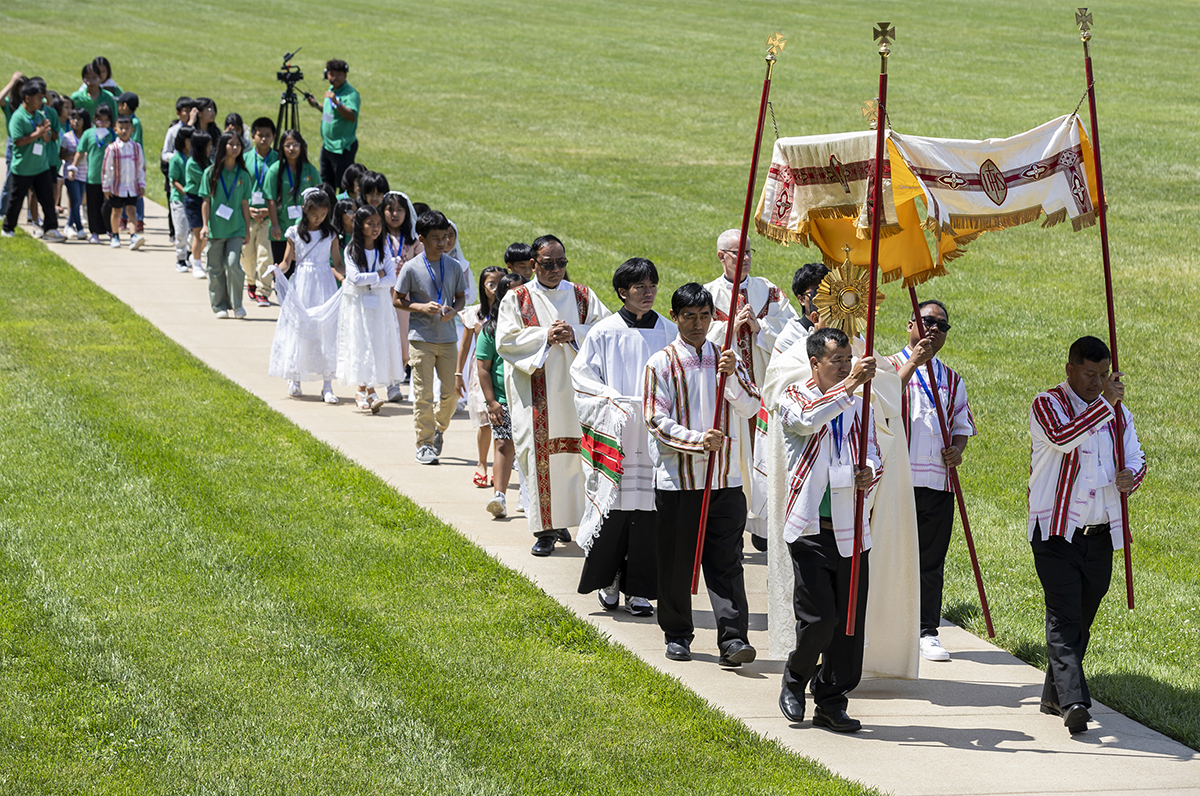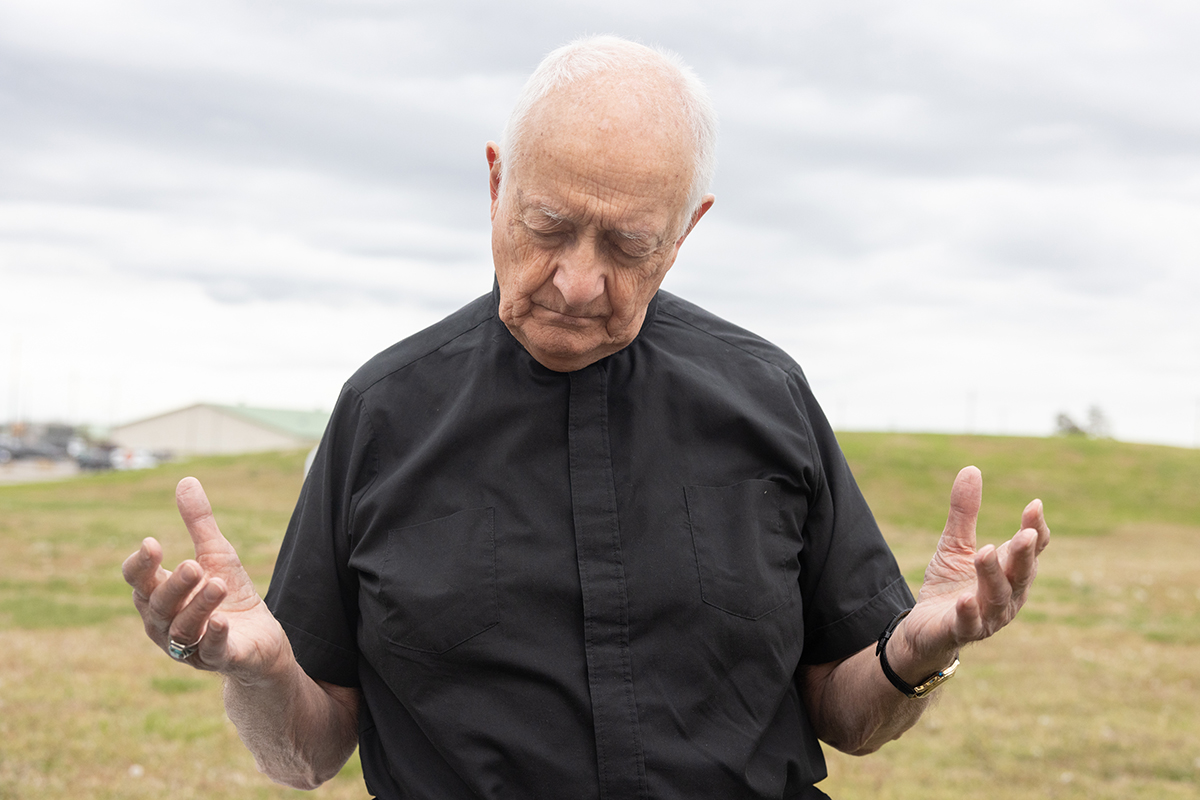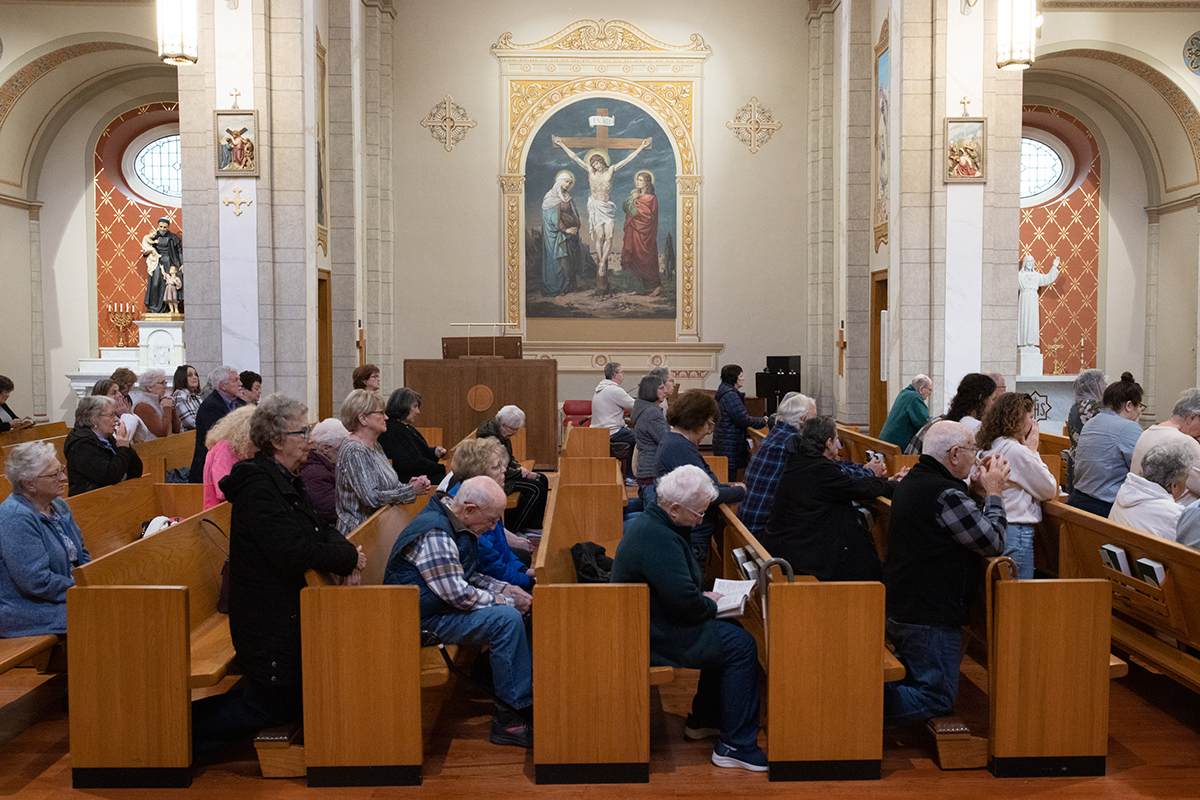Catholic Charities introduces AI chatbot to provide 24/7 emotional support and resources
Feeling stressed? Depressed? Alone?
There’s hope.
Literally.
Hope, an artificial intelligence-powered conversational chatbot, is now available in the Archdiocese of St. Louis for free, 24/7 emotional support and resources.
Catholic Charities of the Archdiocese of St. Louis partnered with Catholic Charities USA to add Hope to the mental health resources offered throughout the archdiocese, said Sharon Spruell, interim CEO of Saint Louis Counseling and CEO of Queen of Peace Center.
“It’s about providing care and support when someone is needing that boost for emotional wellness and resilience,” Spruell said. “And this may be what someone needs — they may need that initial contact with Hope, or those brief check-ins with Hope, to get some of those resources and skills in order to handle their mental health needs. It fits into the overall wellness that we want to provide for the community.”
Hope the chatbot was developed by Cass AI (known as X2AI at the time) and draws from thousands of responses created by clinical psychologists and researchers, according to the company’s website. Catholic Charities USA partnered with Cass AI in 2021 and initially piloted the chatbot in five areas. The chatbot is also known as Tess; Catholic Charities rebranded her as Sister Hope, or just Hope, for its use.
When a user initiates a conversation, Hope asks, “How are you?” or what they are feeling. The chatbot is not designed to diagnose mental health issues but to provide support and offer tips and tools for managing common problems like anxiety and depression, Spruell said.
After an initial conversation with Hope, she will ask if she can text the user later. She will then check in to ask how the tips and strategies she suggested helped or didn’t help. As time goes on, Hope “learns” from the conversation, gaining more knowledge about the pattern of the user’s feelings in order to offer more personalized advice, Spruell said.
If someone is experiencing anxiety, for example, Hope may start by teaching some deep breathing techniques. Hope will then check in later to see if the deep breathing helped and provide additional coping skills as necessary.
While messages are confidential, Hope can also connect users with counselors at Saint Louis Counseling for those looking for long-term services or who want to talk with someone face-to-face, Spruell said.
“It’s important when someone feels the need to get mental health treatment that they’re able to access it right away,” Spruell said. “This reduces the barrier of a wait time. It may be that they’re waiting to get into a counselor for a couple of days, but they can chat with the AI tool and get some resources and tools to be able to help support them in the meantime. And they’re not feeling alone.”
Hope might also serve as a first introduction to mental health care for some, a gateway to learn that “mental health treatment isn’t scary,” Spruell said. “They might then want to decide, OK, I do want to see someone face-to-face.”
The chatbot is one way that Catholic Charities of the Archdiocese of St. Louis is continuing its mission to bring the healing, help and hope of Jesus Christ to those in need, Catholic Charities president Jared Bryson said.
“The top three needs throughout the archdiocese, as we’ve done the assessment of All Things New, have been affordable housing, mental health and workforce development,” Bryson said. “This (chatbot) really fits that mental health part of trying to meet those needs as we look to build our services in mental health and substance use.”
Hope can chat in English and Spanish. It is not meant for crisis intervention; mentions of death or suicide will connect the user to a call from a crisis counselor.
To start chatting with Hope, text “hi” to (202) 949-7249. Hope is also available via chat on ccstl.org and saintlouiscounseling.org.
Feeling stressed? Depressed? Alone? There’s hope. Literally. Hope, an artificial intelligence-powered conversational chatbot, is now available in the Archdiocese of St. Louis for free, 24/7 emotional support and resources. Catholic … Catholic Charities introduces AI chatbot to provide 24/7 emotional support and resources
Subscribe to Read All St. Louis Review Stories
All readers receive 5 stories to read free per month. After that, readers will need to be logged in.
If you are currently receive the St. Louis Review at your home or office, please send your name and address (and subscriber id if you know it) to subscriptions@stlouisreview.com to get your login information.
If you are not currently a subscriber to the St. Louis Review, please contact subscriptions@stlouisreview.com for information on how to subscribe.






